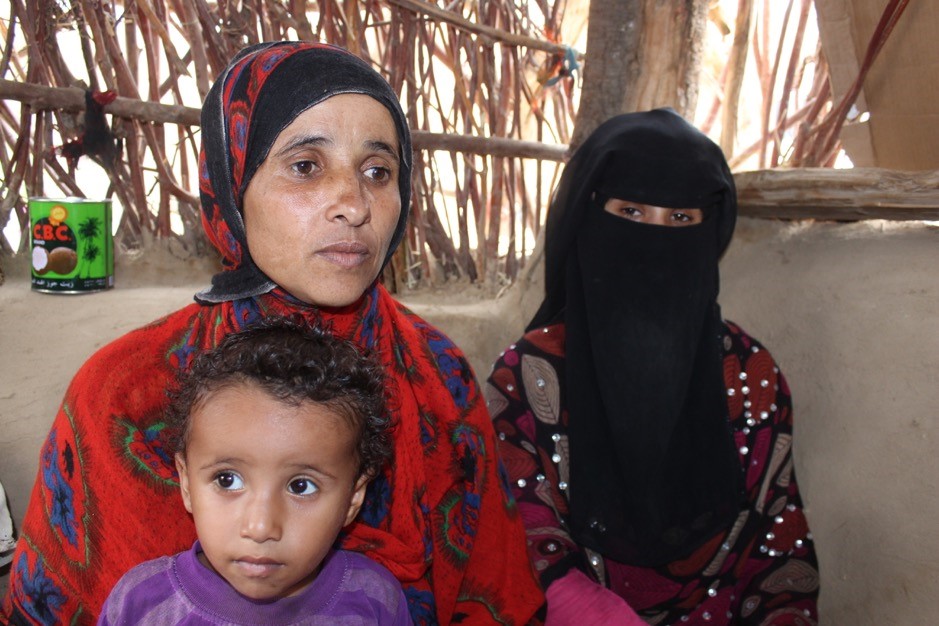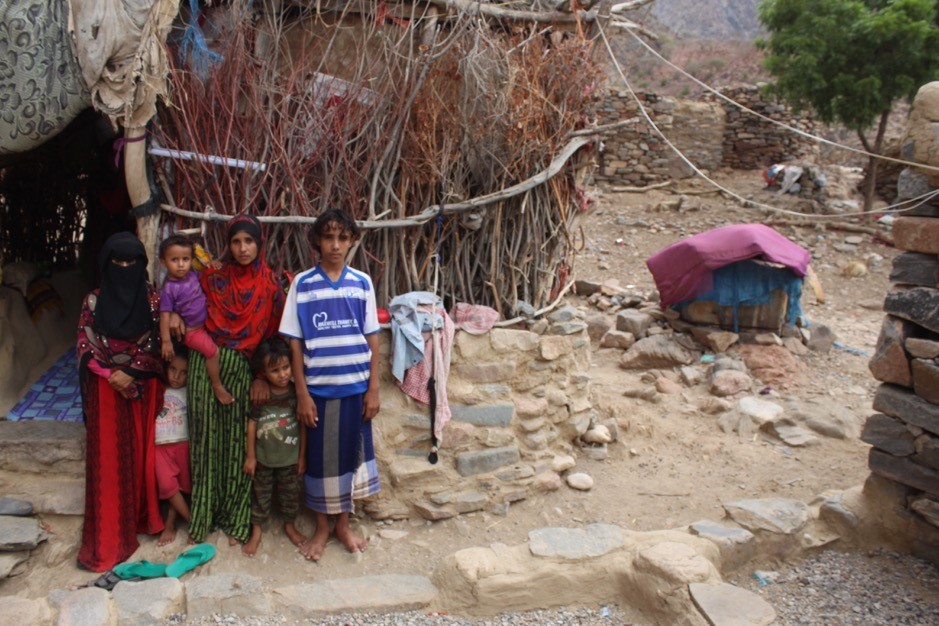The happiness of the people of Yemen has been stolen by the five-year conflict, which has caused a vast humanitarian crisis and the collapse of the economy. 17 million people are food insecure and in need of humanitarian assistance.
In a remote village in Radfan district in Lahj governorate you only see the spectre of misery and hear the screams of hungry children.
In one of the huts, smoke rises from the kitchen. It is the hut of Fayda, who is the sole provider for her family of seven. Fayda and her children were previously severely beaten by her husband and Fayda underwent a serious medical operation two years ago. The family had no income so she worked very hard collecting firewood and grazing animals to gather together some money.
“When the CARE team came to my hut to register us, they thought I had food because smoke was coming from the kitchen,” says Fayda. But she did not cook food for the children – instead she gave them hot water and herbs, after which they went to sleep hungry. “I thought about suicide several times but I did not do it because I was thinking about my children,” she says.
With funding from Food for Peace, CARE implemented the Yemen Emergency Food Assistance project in Fayda’s village. The beneficiaries received one food basket per month for nine months.
This project was an opportunity for Fayda’s family to end their hunger and improve their standard of living. The village even became more peaceful.
“Every day there used to be problems and feuds between the families in the village,” says Fayda. “This was because of the difficult situation we were all in. But after the project, we became quieter.”
With enough food to eat, Fayda and her husband were able to work hard and within a short period, they bought five sheep. They were able to buy school supplies for her eldest son so that he could return school.
CARE was the first organisation to enter this village, and previously implemented a hygiene promotion project. Fayda even had soap in her hut. She says that she learned about the importance of personal hygiene from her neighbour, who was one of the beneficiaries of CARE’s hygiene awareness activities.
Fayda is very happy with the project. “I’m now giving my children three meals a day,” she says. “Thank you CARE and please don’t forget us.”

